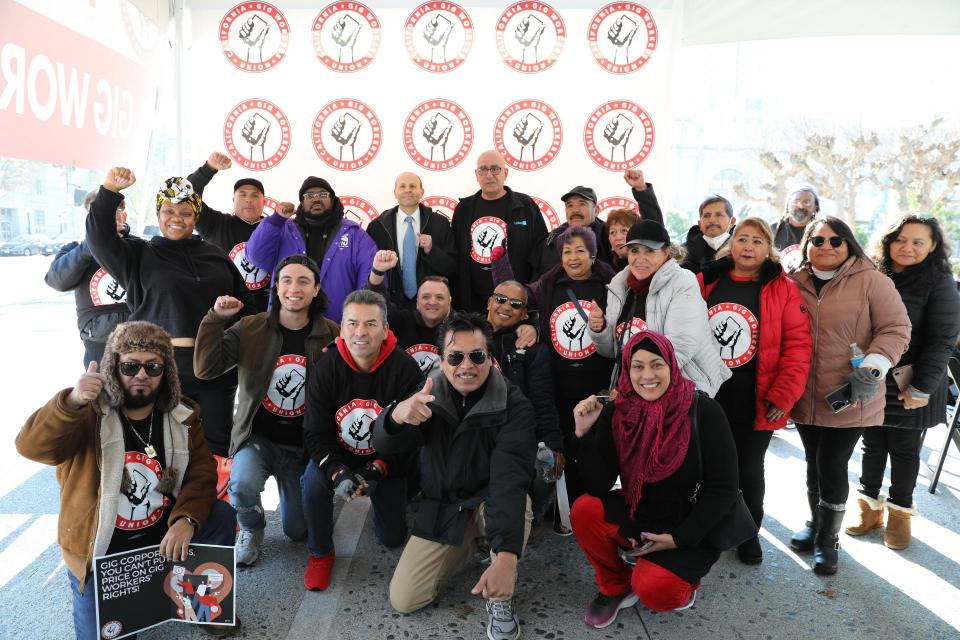
Gig workers continue the fight after the California First District Court of Appeal decision on Proposition 22 lawsuit
Voters approved Proposition 22 over two years ago after app-based ride-hailing and delivery companies, including Uber, Lyft, Instacart, and DoorDash, spent more than $200 million marketing the ballot initiative to Californians as a boon to workers and customers. Despite the promise of flexible schedules, some worker benefits, and low prices, drivers are no better off than before—it has only allowed these companies to deprive them of a living wage, access to workers compensation, paid sick leave, and meaningful healthcare coverage while maximizing their own profits.
While unfortunately the California Court of Appeal did not strike down all of Proposition 22, it did sever provisions restricting the California Legislature’s ability to authorize collective bargaining over drivers’ compensation, benefits, or working conditions and create rules singling out or otherwise putting “unequal regulatory burdens” upon app-based drivers.
“We are grateful that the California Court of Appeal has affirmed that companies like Uber, Lyft, Doordash and Instacart can’t keep drivers from joining together in a union through their deceptive ballot measure,”said Mike Robinson, a gig worker and leader with the California Gig Workers Union – Southern California.“Our right to join together and bargain collectively creates a clear path for drivers and delivery workers to hold giant gig corporations accountable, put an end to unfair deactivations that jeopardize our livelihoods, and win better wages and benefits.
“But no make no mistake, we still believe Prop 22 — in its entirety — is an unconstitutional attack on our basic rights, and the right of the legislature to pass laws affecting workers’ compensation and drivers’ ability to make ends meet amid the skyrocketing cost of gas, food, and housing,” Robinson continued. “More than two years since it was enacted, Prop 22 hasn’t left us any better off than we were before — it’s only allowed gig companies like Uber, Lyft, and DoorDash to deprive us of a living wage, overtime, paid sick leave, and meaningful healthcare coverage.”
“The right to join together in a union is the most powerful way for workers to challenge gig corporations’ exploitative business model that profits off of paying low wages and silencing its workers,”emphasized Theresa Rutherford, the president of SEIU 1021.“Today’s ruling opens the door to the possibility for gig drivers and delivery workers to transform their industry through a strong voice on the job. However, the fact that these workers are still being denied the basic protections most workers have in California is a travesty.”
“When gig companies can spend over $200 million to pass a law that violates our state’s constitution instead of investing in workers, it’s clear that California needs better safeguards for our democracy,”added David Huerta, the president of SEIU California and SEIU United Service Workers West. “And now, the fast-food industry and oil industry are copying the gig industry’s playbook — attempting to boost their profits by hijacking the ballot referendum process and overturning laws that give workers a voice on the job and protect the health of our communities. Every California voter should be concerned about corporations’ growing influence on our democracy and their ability to spend millions of dollars to deceive voters and buy themselves laws.”
The California Gig Workers Union is going to keep fighting until they are paid decent wages and treated with the dignity and respect gig workers deserve. Gig companies should know by now that gig workers will not give up until they have the same rights that all other workers across California have. In the meantime, the struggle continues. The fight is not over.

